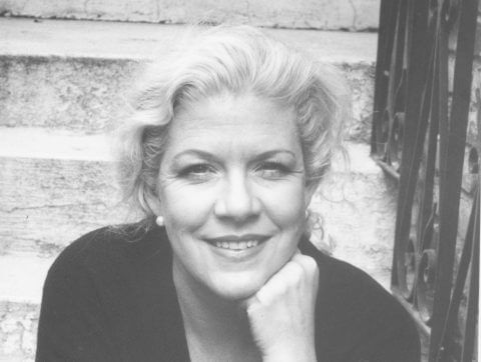Jennifer Clement, and Writing as a Form of Activism
by Paige Passantino
With a global pandemic comes time to read. While for some this time is non-existent—those stocking grocery stores, delivering our food, or on the frontlines of this medical crisis—others may find a silver lining in the time to explore themselves and other worlds through literature. As we collectively approach an uncertain future, I feel reading is crucial. Perhaps this is why this morning I had to put down Normal People by Sally Rooney for a moment while reading a passage in which a character reflects on the lack of potential in writing as a form of resistance.

It made me wonder—where does the rebellion lie in words? I recently attended a Q&A session at the Community College of Baltimore County (via Zoom, as these things are done nowadays) with renowned author and first woman president of PEN International, Jennifer Clement. The event was hosted by an organization of the college, the Community Book Connection, as part of a series entitled “No Borders, No Walls: Women|Writing|Resistance.” The author of four novels, Clement has always been able to use language as a form of activism.
At the event, Clement spoke of developing a deeply personal connection with her characters, emphasizing how she fell in love with simply all of them—even the most minor. If you’ve read any of her work, I think this is incredibly apparent. She went on to explain how utilizing poetry allowed these characters to maintain their dignity throughout adversity, and she detailed her process and intellectual choices while writing the novel Prayers for the Stolen, a story of sex trafficking across the U.S. and Mexico border.
“Many writers talk about this,” Clement explained. “There is this point as a writer where you really fall in love with your characters. There is an actual proper affection that you feel. For me, I would never want [a character] to lose their dignity.” She was referring specifically to the many women she has written of who have experienced severe violence: assault, gang rape, covering their own bodies in cigarette burns to mark themselves as captives. She found herself able to express deep affection and respect for these women while still penning the details of their tragedies, and she did so by assuming a heavily metaphorical voice.
She explained:
“How does one write about violence? How does one write about gang rape? I think every writer has this choice. What door are you going to enter that world through? Many writers write about these things, what they now call pornographic violence, and the writing is so intensely graphic, realistic, medical if you will. For me, it was very clear that the challenge and the road I wanted to take was, how can I write about such dark things with poetry? How can I make language my salvation? It was an absolute intention, and I thought, how am I going to write about guns with poetry? For example, when I describe Paula’s gang rape, Paula says, ‘What can I tell you? I was like a plastic bottle everyone wanted to take a drink of.’ Poetry, for me, is far more powerful than if it were graphically, or medically, explained.”
During the discussion, Clement offered up a long list of novels that yielded powerful social results. She cited Oliver Twist as a groundbreaking social novel that resulted in a change in child labor laws. She argued that Jane Austen was influential in the shift in property rights for women. Victor Hugo’s Les Misérables indelibly altered the French perception of the poor.
It’s not an active choice for Clement. “I never sat down and said, oh I want to write a social novel that will change the world,” she said. “It doesn’t work that way inside of me. It works in the way that there are things that give me pain. And I am unable to let go of these things. So I end up writing.”
So where exactly is the rebellion in literature? I believe it’s in the words that are too beautiful to put down. The characters so deeply loved by their creators the reader has no choice but to actively feel the same. And typically, the discomfort brought upon us when those characters do not triumph, as in Clement’s Prayers for the Stolen. To highlight inequalities with a sense of poetry creates a setting of emotional undeniability. So perhaps the answer is indeed found in connection; how fostering an intimate relationship between character and reader—one that initiates between character and author—can form a bond strong enough to become the basis for social change.
